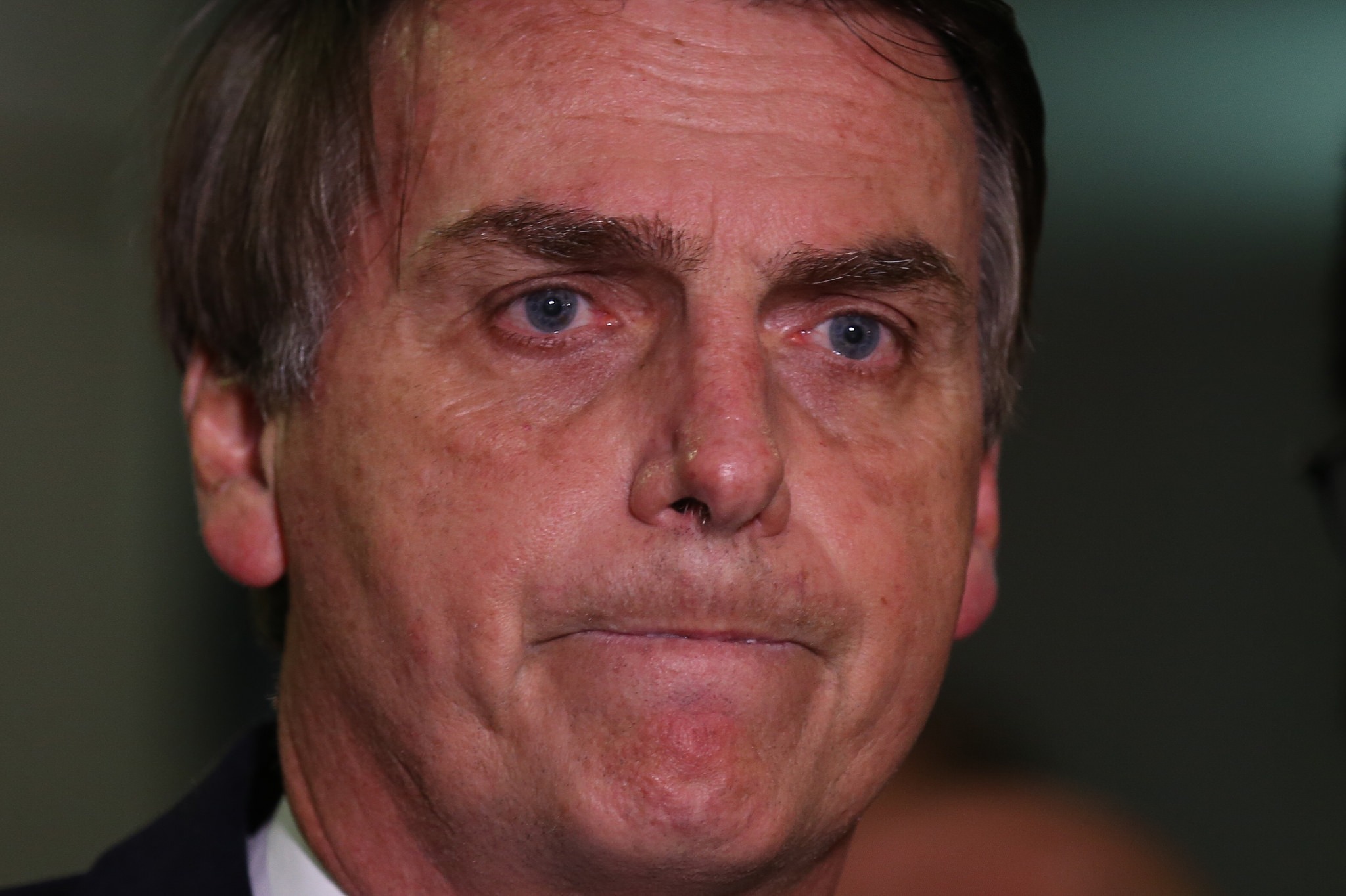
Jair Bolsonaro, a right-wing former army captain, is set to win power in Brazil after he beat expectations by capturing 46 per cent of votes in the first round of the presidential election on October 7, short of the majority needed to win outright, as Brazilians expressed disgust with politics as usual.
He will face Fernando Haddad – a former mayor of São Paulo and the presidential candidate for the corruption-mired Brazil’s Workers’ party, or the PT, who secured 29 per cent of valid votes – in the run-off vote on October 28. Ciro Gomes, the third-placed centre-left candidate of the Democratic Labour party with 12.5 per cent, has already indicated he will support Mr Haddad.
Mr Bolsonaro has portrayed himself as an outsider, despite having served 27 years in congress, capitalising on popular discontent with establishment political parties.
A multibillion-dollar bribery scheme centred on the state-run oil company Petrobras has targeted mainstream politicians and left many voters desperate for a change. Luiz Inácio Lula da Silva – a leftwing former president who served two terms and left office in 2011 with a record-high approval rating – was the front-runner for much of the past year, but he became ineligible to run for office after an appeals court upheld a corruption and money laundering conviction against him.
Mr Bolsonaro is known for disparaging women, blacks and gays. He yearns for Brazil`s former military dictatorship. He once told a PT legislator she did not “deserve” to be raped. He has pledged to ease gun control laws and give police more power to pursue criminals.
If Mr Bolsonaro wins the second round run-off, he will be the first rightwing politician leading Brazil since its military dictatorship ended in the mid-1980s.
Latin America’s largest economy is struggling out of its worst recession in modern history, which slashed GDP per person by 10 per cent. Growth has resumed, but is not strong enough to create jobs for the more than 13 million unemployed workers. The budget deficit is equivalent to 7 per cent of GDP. Public-sector debt rose from 78 per cent of GDP in 2016 to 84 per cent of GDP last year. Congress has enacted a constitutional amendment that freezes federal spending in real terms at least until 2026, but more cuts are needed to stabilise federal debt as non-discretionary spending such as pension benefits are consuming more than 90 per cent of the federal budget (Brazil spends about 12 per cent of its GDP on pensions).
During the campaign, Mr Bolsonaro promised liberal reforms to rein in Brazil’s oversized state.
Brazil’s Congress is fragmented, with dozens of parties vying for pork and patronage. The leftist PT – which ruled for 13 years under Mr Lula da Silva and his successor Dilma Rousseff who was impeached in 2016 for manipulating government accounts to hide the scope of the country’s deficit problems before her re-election in 2014 – lost seats in both houses of Congress, compared with the previous elections, though it remains the largest party in the lower house, with 56 seats. Mr Bolsonaro’s party, the Social Liberal party, made big gains, winning 52 seats in the lower house, up from 8.
Photo: Fábio Rodrigues Pozzebom/Agência Brasil